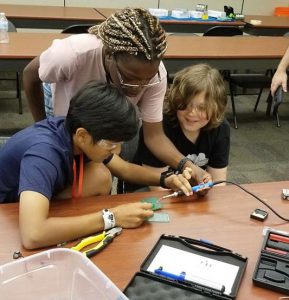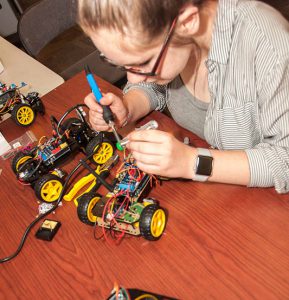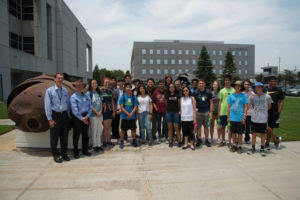Why is STEM Important?

STEM education is crucial for both individual success and societal progress. It equips you with the skills to land in-demand jobs, think critically and solve problems, and drive innovation that shapes the future. From understanding the world around you to contributing to its advancement, STEM empowers you to be a well-rounded and impactful member of society.
- Job market: STEM fields are growing rapidly, with many new jobs being created. A strong foundation in STEM can make you more competitive in the job market and qualify you for higher-paying careers.
- Critical thinking and problem-solving: STEM education teaches you how to think critically, solve problems, and analyze data. These skills are valuable in any field, not just STEM-related ones.
- Innovation: STEM is the driving force behind innovation. From new medical technologies to sustainable energy solutions, STEM fields are constantly developing new ways to improve our lives.
- Empowered public: A basic understanding of STEM concepts is essential for making informed decisions about the world around you. This includes things like understanding climate change, the safety of new technologies, and the ethics of artificial intelligence. All of these are key aspects of a positive future, which only increases the importance of stem education.
What does STEM Stand for?
STEM stands for science, technology, engineering, and mathematics. These four fields are interconnected and play a vital role in innovation, problem-solving, and the overall progress of society.
-
Science: This is the foundation of STEM, focusing on understanding the natural world through observation, experimentation, and analysis. Scientists ask questions about how things work, from the tiniest particles to the vastness of space.
-
Technology: This applies scientific knowledge to create new tools, processes, and inventions. Think smartphones, medical devices, or sustainable energy solutions. Technology relies on scientific understanding to function and advance.
-
Engineering: Engineers use scientific principles and mathematical models to design, build, and maintain structures, machines, and systems. They bridge the gap between scientific discovery and practical application. Explore the different types of engineering, from designing bridges to developing robots, engineers use their problem-solving skills to turn ideas into reality.
-
Mathematics: Math is the language of science and engineering. It provides the tools to analyze data, model systems, and make predictions. Whether it’s calculating the trajectory of a rocket or analyzing DNA sequences, math is essential for understanding and manipulating the world around us.
What are Important STEM Careers?
- Software Developer: Design, develop, and test computer software applications. They are the masterminds behind the websites and apps you use every day.
- Data Scientist: Collect, analyze, and interpret large sets of data to uncover patterns and trends. Data scientists are the rockstars of the information age, using their skills to solve complex problems in various fields.
- Biomedical Engineer: Apply engineering principles to solve problems in the medical field. They design life-saving medical devices and prosthetics, pushing the boundaries of medical technology.
- Civil Engineer: Design and oversee the construction of public infrastructure projects like bridges, dams, and roads. Civil engineers are the backbone of our built environment, ensuring the safety and functionality of our communities.

- Environmental Engineer: Develop solutions to environmental problems like pollution and waste management. They are the guardians of our planet, working to create a more sustainable future.
- Mechanical Engineer: Design, develop, and test mechanical systems, from robots to power plants. Mechanical engineers are the makers and tinkerers, bringing ideas to life through their ingenuity.
- Electrical Engineer: Design and develop electrical systems, including power grids, communication networks, and electronic devices. Electrical engineers are the spark behind our technological world, keeping the lights on and information flowing.
- Chemical Engineer: Develop and improve chemical processes used in a variety of industries, from manufacturing to medicine. Chemical engineers are the alchemists of our time, transforming raw materials into useful products.
How to Spark an Interest in STEM
-
Find the STEM in your hobbies: Do you love video games? Explore the coding and engineering behind them. Enjoy building with Legos? Look into mechanical engineering or robotics. By connecting STEM to your existing interests, learning feels less like a chore and more like an extension of what you enjoy.
-
Make it hands-on: Science centers and museums often have interactive exhibits that let you experiment and explore scientific concepts in a fun way. You can also try DIY science projects at home using common household items. Getting your hands dirty and seeing things in action can make STEM come alive.
-
Explore the real-world applications: STEM isn’t just about abstract concepts. Look for examples of how STEM is used in everyday life, from the weather forecast to the design of your smartphone. Understanding the practical applications of STEM can make it more relatable and interesting.
-
Get involved in STEM programs and clubs: Many schools and libraries offer after-school programs or clubs focused on STEM activities. These can be a great way to meet like-minded people, learn new skills, and participate in fun projects. Here at the TryEngineering Summer Institute we offer prospective students’ a full engineering summer camp to take their curiosity to the next level!
-
Read books and watch documentaries: There’s a wealth of information available about STEM topics. Dive into biographies of inspiring scientists and engineers, or watch documentaries about groundbreaking discoveries and inventions. Learning about the people behind the science can be motivating.
-
Embrace the challenge: Don’t be afraid to step outside your comfort zone and try something new. STEM can be challenging, but that’s part of the fun! Embrace the opportunity to learn from your mistakes and persevere through difficulties. There’s a great sense of accomplishment that comes with mastering a new STEM concept.
STEM fields are the architects of our future. From groundbreaking innovations in medicine and sustainable energy to tackling complex global challenges like climate change, STEM is constantly pushing the boundaries of what’s possible. These advancements not only improve our quality of life but also connect us globally through powerful communication technologies. By equipping individuals with critical thinking and problem-solving skills, STEM empowers them to navigate an increasingly complex world. In essence, STEM holds the key to building a healthier, more sustainable, and equitable future for all.
Check out our Engineering Summer Camp!
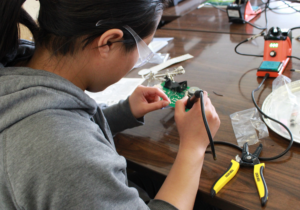 Spark your child’s curiosity and empower them to become the innovators of tomorrow! If you’re looking to get your child interested in STEM and are looking to find activities that go beyond textbooks, consider enrolling them in our engineering summer camp. Our program features hands-on learning, allowing students to delve into the exciting world of STEM. Through learning in the classroom combined with engaging challenges, campers will build critical thinking, problem-solving, and collaboration skills – all while having a blast!
Spark your child’s curiosity and empower them to become the innovators of tomorrow! If you’re looking to get your child interested in STEM and are looking to find activities that go beyond textbooks, consider enrolling them in our engineering summer camp. Our program features hands-on learning, allowing students to delve into the exciting world of STEM. Through learning in the classroom combined with engaging challenges, campers will build critical thinking, problem-solving, and collaboration skills – all while having a blast!
Has your child shown any interest in building bridges, coding robots, or designing airplanes? Look no further than our nationwide engineering summer camp! With convenient locations across the country, we offer in-depth modules that delve into the exciting worlds of mechanical, civil, aerospace, and electrical engineering. Campers will gain hands-on experience with industry-standard tools and software, all under the guidance of experienced instructors. This immersive summer program allows young minds to explore a variety of engineering disciplines, helping them discover their passion and ignite their future career path.

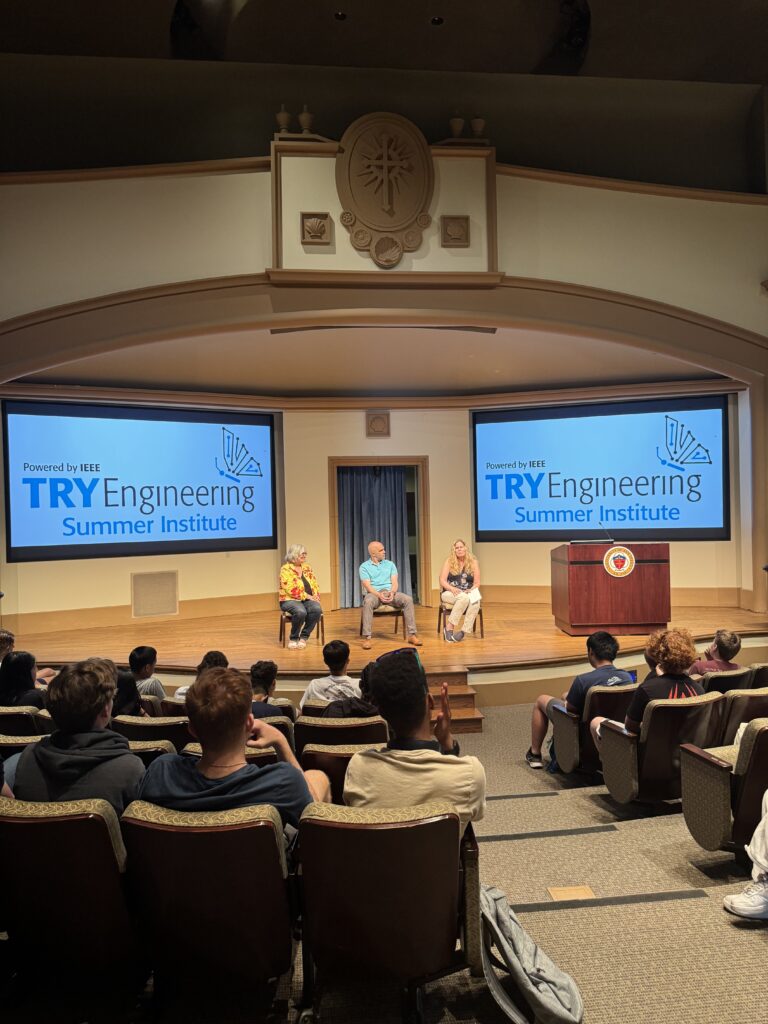
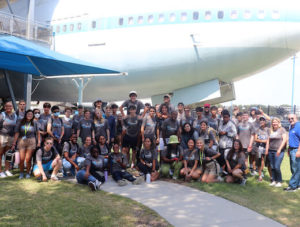




 With nonstop sunshine and the beaches, strands, shopping and more just a stone’s throw from campus, our USD TESI students will really have a wonderful summer. With such beautiful surroundings, we get the chance to explore and maybe even find the legendary fish taco truck!
With nonstop sunshine and the beaches, strands, shopping and more just a stone’s throw from campus, our USD TESI students will really have a wonderful summer. With such beautiful surroundings, we get the chance to explore and maybe even find the legendary fish taco truck! The University of Pennsylvania is a fabulous, safe urban campus located in the heart of Philadelphia. This allows us easy access to many of the local sights, sounds and flavors available to us!
The University of Pennsylvania is a fabulous, safe urban campus located in the heart of Philadelphia. This allows us easy access to many of the local sights, sounds and flavors available to us! The entrance is staffed by Penn Security 24/7. Inside is our air-conditioned wonderland, packed with the same fabulous amenities the Penn students enjoy. We also have our own outdoor area, inside the secure walls, where we have patio seating, tables, a grassy area, and more. It is quite lovely.
The entrance is staffed by Penn Security 24/7. Inside is our air-conditioned wonderland, packed with the same fabulous amenities the Penn students enjoy. We also have our own outdoor area, inside the secure walls, where we have patio seating, tables, a grassy area, and more. It is quite lovely.













